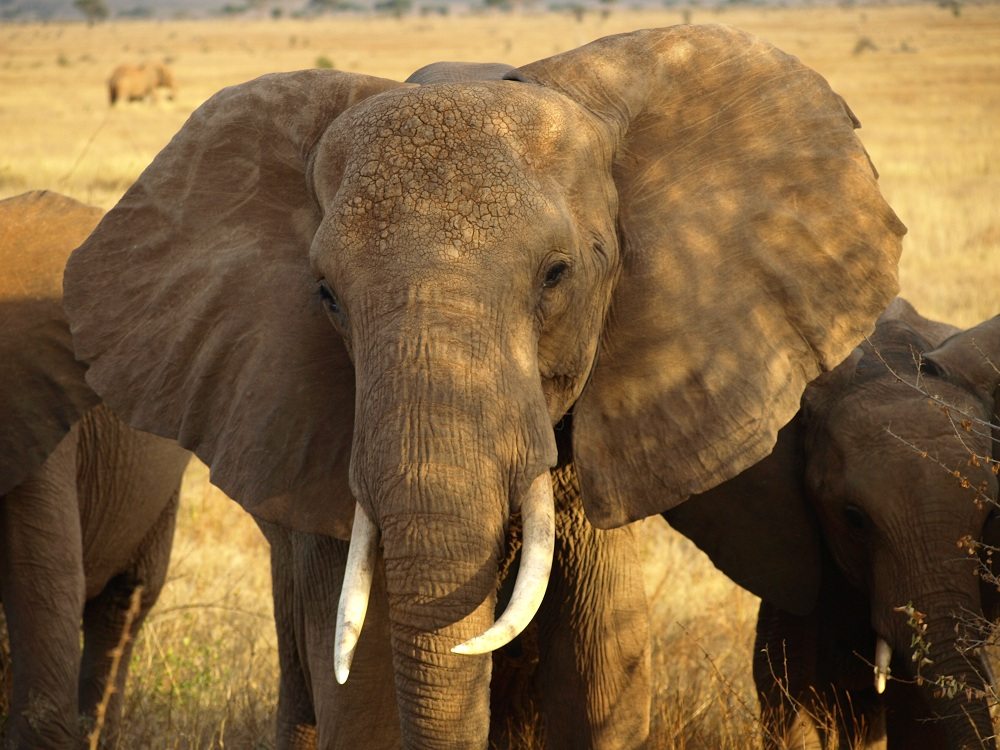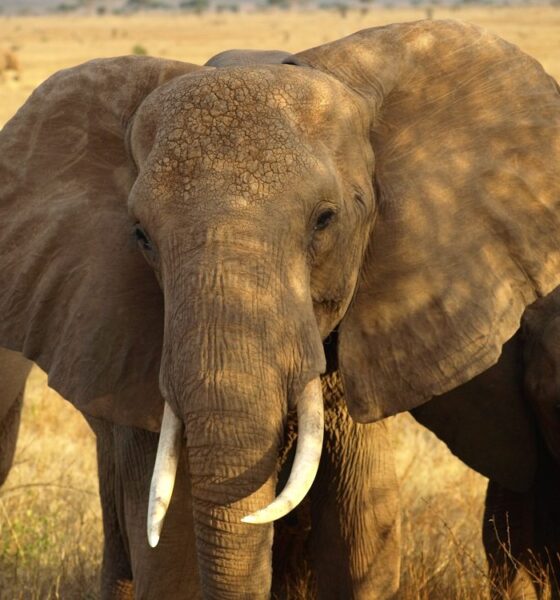

Environment
Thousands march to demand end to rhino and elephant poaching
Thousands of people took to the streets around the world on Saturday to protest against the illegal wildlife trade that is threatening the very existence of rhinos and elephants.
Blue & Green Tomorrow is currently running a crowdfunder to ensure its survival. Please pledge.
The Global March for Elephants and Rhinos drew in demonstrators in more than 130 cities, from New York to Nairobi. Across six continents, the protestors urged world leaders to act before it is too late to save the threatened species, which are hunted for their ivory and horn.
Around 35,000 elephants and 1,000 rhinos are illegally killed each year. The rate of rhino poaching has soared particularly rapidly, with just 13 killed in 2007.
Most of these animals are slaughtered to sustain a black market trade that is now driven by demand in Asia. In countries such as Vietnam and China, ivory or rhino horn products are used as prestigious gifts or traditional medicines.
In Africa, it is believed that there are around 400,000-650,000 elephants remaining, while only 25,000 rhinos survive across the continent. At current poaching rates, both species face extinction this century.
“We are protesting against the political leaders of the world, who do not have the guts and political will to make changes in their laws,” Dex Kotze, one of the march’s organisers told AFP.
“We have to do this for our future generation. The youth today is making a statement globally in 136 cities that it’s their heritage that is being killed.”
In Washington, Jen Samuel, another organiser, told a crowd, “We are marching against extinction.”
The plight of rhinos and elephants has gained international attention in recent months, after 46 countries signed a declaration committing to end the illegal wildlife trade in February.
An international campaign, spearheaded by celebrities such as David Beckham and Prince William, has also called for more to be done.
But the scale of the challenge is huge – with the wildlife trade now the fourth most valuable illegal trade, behind only narcotics, counterfeiting and human trafficking.
Overall, environmental crime – also including activities such as illegal logging – is now worth up to $213 billion (£125 billion) a year, funding terrorism and organised crime, according to Interpol.
“We must recognise that the illegal trade in wildlife forms part of an environmental crimes economy that is not only destroying species and habitats, but is also jeopardizing livelihoods, peace and security of local communities and nation states,” Achim Steiner, executive director of the UN Environment Programme commented after the march.
While calling for swift action to stop poaching at a local and national level, Steiner stressed that international cooperation is required if threatened species are to be protected.
Photo: Emma Websdale
Further reading:
$213bn environmental crime trade ‘funding terrorists and gangs’
‘Poaching epidemic’ leads to fear over future of elephants in Africa
William Hague: fighting illegal wildlife trade is ‘great moral cause’


 Environment12 months ago
Environment12 months agoAre Polymer Banknotes: an Eco-Friendly Trend or a Groundswell?

 Features11 months ago
Features11 months agoEco-Friendly Cryptocurrencies: Sustainable Investment Choices

 Features12 months ago
Features12 months agoEco-Friendly Crypto Traders Must Find the Right Exchange

 Energy11 months ago
Energy11 months agoThe Growing Role of Solar Panels in Ireland’s Energy Future





























